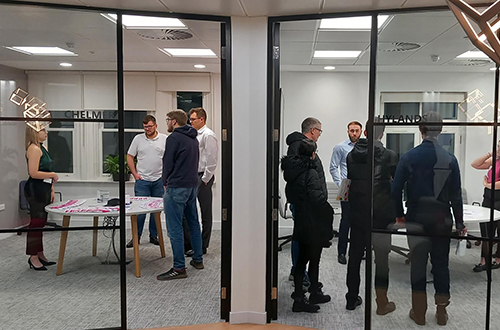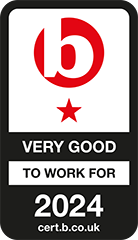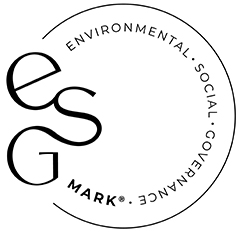Our monthly round-up of the latest VAT news.
Don’t focus on the Doggie, who’s window is it?
A case where HMRC had assessed a husband and wife for direct tax and VAT. The VAT issue was whether there were two distinct businesses, and if so, what the true turnover of each was. There was the wife’s sole proprietor business and the husband and wife’s partnership. Both businesses bred and sold puppies; the distinction being of the breed or lineage of the dogs sold. The distinction was somewhat blurred in the evidence, initially that the partnership sold gun and working dog breeds and the sole proprietor bred for pets. At the Tribunal this became one business supplying cross-breeds the other pure breeds.
The sole proprietor business applied to register for VAT in 2017 and at that point the partnership ceased to trade.
The Tribunal went through the records and bank statements of the two businesses thoroughly and agreed with HMRC that the true registration date for the sole proprietorship was 2011, and that the partnership should have registered in 2015.
This is a case where the income was recognised not necessarily based on the puppy sold, but with what appears to be allocated to keep the relevant turnover below the VAT threshold.
Gold: exempt or zero-rated?
The supplies of gold for investment purposes are usually (usually) exempt due to Group 15 of the Exempt Schedule (Schedule 9) of the VAT Act 1994. The taxpayer wrote to HMRC seeking approval for a special method for their partial exemption and at that point HMRC said that such transactions would be exempt. The taxpayer initially challenged this but withdrew their Tribunal appeal before it could be heard.
Looking to another route the taxpayer then asked for a Judicial review of HMRC’s decision due to the “legitimate expectation” because of a Memorandum of Understanding (MOU) in 2013 between HMRC, the London Bullion Market Association and the London Platinum and Palladium Market.
The High Court has ruled that the MOU was written in such a way that it was clear that the taxpayer’s supplies fell outside the MOU’s terms and as such were taxable as per the law i.e. exempt.
Legitimate expectations
The case above links to this in that the VAT liability is a separate matter (and, unlike the example above, is going to Tribunal as we write), but it is the taxpayer’s legitimate expectation that is the issue.
The taxpayer made supplies of serviced apartments, which it considered to be an exempt supply. In 2019 HMRC, after several previous visits where the tax treatment was not raised, decided that it was a taxable supply and raised an assessment for nearly £5m.
The taxpayer asked for a Judicia review to examine, amongst other matters the “legitimate expectation” of the taxpayer that as HMRC had not queried the VAT treatment of the supplies in previous visits it was only right for the taxpayer to assume that they were correct in treating the supplies as exempt.
Again, the High Court ruled against the taxpayer, as previous HMRC officers did not consider the tax treatment specifically, the taxpayer had effectively made its own decision, which has now been challenge.
The key takeaway from this is that a VAT visit is not a VAT audit. Issues not raised by an officer at a visit does not mean that HMRC agrees with the current VAT treatment and that each visit could see what the taxpayer may see as a ‘change of mind’ by HMRC.
Fee protection insurance can help cover costs such as challenging HMRC’s change of heart decisions. Please get in touch for details of this service.
Health procedure or cosmetic work?
The VAT exemption for the provision of services by a registered health professional applies when these services relate to the diagnosis, treatment or prevention of diseases or health disorders. The taxpayer here was a skin clinic providing Botox, dermal fillers, chemical peels, etc.
HMRC raised assessments on the basis that the treatments provided were not medical but voluntary and/or cosmetic. The Tribunal agreed. The exemption did not apply as the patients were really customers who decided to visit the clinic rather than be directed to do so by a health professional. As such the supplies were standard rated.
The exemption for supplies of services by health professionals is an area fraught with complexities; not just about whether the supply is of health services, but also if the supply is one of staff rather than the health services of the relevant health professional. Where this is an issue professional advice should be sought.
Late VAT payment
A taxpayer appeals about the default surcharge for a late payment which equated to £5,000 per day late.
The taxpayer had several reasons for late payment which were added to during the Tribunal hearing, including that he had had a heart attack when the payment was due. The Tribunal dismissed the reasons that did not form part of the appeal documentation and ruled that those that were notified to HMRC did not constitute a “reasonable excuse”. Case dismissed.
Accommodation = TOMS
The Tour Operators Margin Scheme (TOMS) is an EU wide scheme that still has effect in Great Britain post Brexit. The main points of the scheme are that the place of supply is where the operator belongs (not where the holiday or event takes place) and that any VAT due is calculated on the profit (or margin) of that holiday/event.
Usually, TOMS relates to a supply of a package of goods and services that have not been materially altered by the provider.
Here the taxpayer rented flats from several landlords. These were then rented out as serviced apartments. Unlike the first case in this newsletter, the taxpayer took the view that these supplies were taxable at the standard rate, but that TOMS applied so the VAT due was 1/6th of the profit for each period.
HMRC said that the acts of furnishing the flats and supplying them on short leases (where the landlords had leased them to the taxpayer on long leases) were material alterations.
The Tribunal ruled in favour of the taxpayer.
This case could have huge significance for those providing short term accommodation and it’s likely that HMRC will look to challenge this case. Alternatively, as the case related to the pre-Brexit period, this may be an instance were HMRC looks to change the UK VAT legislation to distinguish it from the EU Primary VAT Directive, which the Tribunal relied on in making their judgment.
Every little helps?
During the recent heatwave Tesco took the decision to bear the cost of VAT on most suncream products and sell them at prices that would reflect a zero-rated product.
However, changing a product from standard to the zero-rated doesn’t always see the savings being passed on to the consumer. When female sanitary products were zero-rated, it has been calculated that only 1% of this saving has been passed on to the consumer in terms of shelf prices.
Get in touch
If you would like to discuss any of these VAT updates in more detail, please contact Ian Marrow via ian.marrow@rickardluckin.co.uk
To receive future copies of our VAT newsletter, or any of our other newsletters, directly to your inbox, please register your interest via our preference centre.
If you have any questions about the above, or would like more information specific to your circumstances, please enter your email address below and we will get in touch:













